
Tell us about your growing up years in Nigeria, family influence, your community, and personal experiences that sparked the dream of becoming a doctor.
My dad is actually a doctor as well and that perhaps was one of the factors that inspired my decision to study medicine. However, a doctor uncle of mine who is late now, also highly influenced my career choice. I saw that he derived joy in getting people better in terms of their health conditions, while at the same time making a decent living wage. I admired the charm he exuded while leading his clinical staff.
There are a lot of struggles in medical education in Nigeria—limited resources and long hours. Tell us how you are determined to succeed.
I’m not sure how it really is now, however back then, in my time in medical school, it was tough. We had to study for very long hours, participate in numerous discussion groups and practical sessions. We had to sacrifice a good number of holidays unlike our non medical colleagues who went home to enjoy those festive seasons. Looking back, it’s hard to imagine how one pulled through mentally. But the summary is that once one had decided on that chosen career path, one just had to be laser focused and determined to succeed. And seeing my peers channel all of their strengths and resources into our medical studies inspired me personally. I’ll say moving with the right crowd helped a ton. Medical school is one place where the phrase ‘do not follow bad gang’ applies a great deal.

At what point did you decide to move to the U.S and what were the challenges of transitioning to the U.S. medical system? In terms of the exams, cultural adjustments, and securing a residency.
My roommate at the tail end of my medical school years grew up in the US. Although his dad was one of our professors in school at that time, he had practiced medicine in the US for years before relocating back to Ibadan. I could sense how very well to do and knowledgeable he was. Also, my roommate accidentally left a US magazine in our room one day. I stumbled upon this magazine and in browsing through, I saw an article where they mentioned how much an average physician made in the States. I immediately did the currency conversion and realized how much more this amounted to in comparison to the Nigerian physician pay. I guess that was my main driver and that little piece of knowledge made me decide I was going to the US. Again, laser focus. I did a lot of research then on the process and fortunately when I got to Lagos for my housemanship, there were a number of my colleagues then with similar intentions to relocate. We formed study groups and so forth, did our exams mostly in Ghana and saved up to travel to the US for the other required exams. We worked hard to score high marks in the USMLE, deployed the small network of help we could garner in our little world back then in order for us to get clinical observerships and research positions we would add to our resumes and as a result of these efforts, we had a number of residency interviews. I remember visiting cyber cafes on a daily basis back then and checking my yahoo email for interview offers and rejections. I had over 7 interviews and I eventually matched in my 2nd choice which was where I did my 3 years of Internal Medicine. Adjusting for me was not much of a challenge to be honest. Maybe my prior non immigration trips to the US helped in this regard. Plus, coming from my schooling in Ibadan and all that we went through, adjusting to the easier life in the States was relatively easy.
While you were settling down in the U.S, what were your early struggles? How did you navigate rejections, financial constraints, and prove yourself in a highly competitive field?
Early struggles really bordered on the uncertainty of not knowing where one would do residency and the fear of not getting a position. I had a good network of friends who I often planned things with and this made what would have otherwise been a struggle surmountable. I had saved up very well during my housejob in Lagos and eschewed the usual luxuries one would otherwise have spent some of the fair salaries we received on. Also, the fact that one had no real life obligations at that time really helped. Honestly, it was about detailed planning and extreme self discipline. But that period of transition was fun as well. Again, because of the network of friends.
In breaking barriers in Dallas, how did you match into the top residency program?
Dallas came years later. I had finished residency and worked for several years in New Jersey before moving to Dallas. I was almost at the mid level of my career then. Of course, the hardwork and dedication happened from day one and that has remained part of me even until now. I take the job seriously on a daily basis and act as though every effort matters. Even though I have done this for a while now, I still work hard daily and don’t take any aspect of my career for granted at all.

What are the impacts that you have made in Dallas that made you become known for exceptional patient care, research, and medical innovations. How did you become recognized as one of the best doctors in Dallas? Was it through awards, patient testimonials or leadership roles?
All of the above. A lot of the awards are actually driven by my peers. Medicine is one field where your colleagues can easily tell how good you are at what you do. AI have been humbled by these awards over the years. Especially the Physician of the Year award and the Fort Worth Top Doc awards. I guess my colleagues see the utmost dedication and commitment to my practice as well as the care I give to our patients, in addition to the training I give to the residents and medical students. These perhaps have been the factors that have led to these awards.
We are aware of how you have been giving back and inspiring others. Tell us more about how you are mentoring young Nigerians back home, including medical graduates and even supporting medical initiatives back home.
I support a number of causes in Nigeria. I am a member of the Society of Quality Healthcare in Nigeria for example. I sponsor a bunch of young students as well. Most importantly, I do mentor several students, medical and otherwise.
What is your advice for aspiring doctors and what is the place of resilience, continuous learning, and the power of persistence in medical practice?
These words summarize the qualities and ingredients needed to do well in medicine. The need to be resilient cannot be understated. There will always be humongous challenges. Unexpected and poor patient outcomes can sometimes happen. Unpleasant encounters with patients, patients’ families and even other medical practitioners sometimes happen and even lawsuits sometimes occur. In all of these, one has to ride on and do so strongly too, Tough times don’t last in medicine but tough people do. Ultimately, one’s qualities prevail and the physician still comes out successful.
What are your thoughts about the future of Healthcare in Nigeria and Africa?
The future of Healthcare in Nigeria is actually bright. As you know, Nigeria has produced the best of the best in terms of doctors all over the world and in large numbers too. I foresee this somehow trickling down back to the country in the future. Such that the expertise of the diasporan physician is immensely harnessed for Nigeria. This is in fact already happening. Once healthcare financing in Nigeria is unlocked, there will be a healthcare sector boom in Nigeria. Right now, Nigeria lives mostly on what is called the Budget system of healthcare financing, which is really the worst system a country can adopt. Also, the health insurance system Nigeria currently has is miniscule in relation to the huge population. Healthcare financing in the way of universal insurance needs to be unlocked and government run healthcare delivery needs to be scaled back big time, in order for the private guys to scale up and succeed. Once the healthcare payment system becomes robust and competitive, you will see the big and positive difference. Attrition in the way of brain drain will abate and conversely, brain gain will happen.
______________ Olutoyin Abitoye, MD is currently the President and Chief Medical Director at Envision Hospitalists and serves as the Chairman of the Clinical Informatics and Physician Advisory Committee. Doctor Olutoyin Abitoye is an Adjunct Assistant Clinical Professor and a member of the Clinical Faculty of the Internal Medicine Program. Dr. Abitoye graduated from the University of Ibadan’s College of Medicine in 2002 and proceeded to the London School of Economics and Political Science to study Health Economics, Policy and Management. He is a member of the American Medical Association, American Society of Hospital Medicine, American College of Physicians, Nigerian Medical Association and the Society for Quality Health Care in Nigeria. A highly celebrated and accomplished physician Dr. Abitoye has won many awards in his career amongst which are - Physician of the Year, Medical City North Hills in 2015; Heart Pin Award, Medical City Denton in 2015 and 2019; Fort Worth Magazine Top Docs Awards, Years 2015, 2016, 2017, 2018, 2019 and 2020. Top 25% of 2002 graduating class of the College of Medicine, University of Ibadan and others.


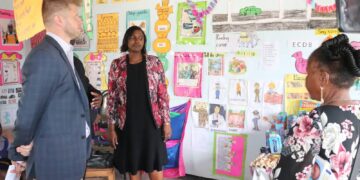

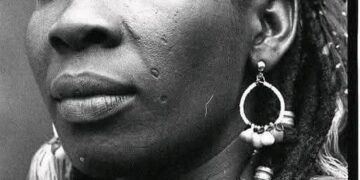
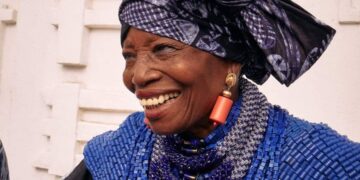
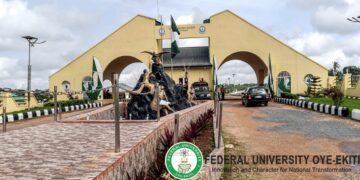


























































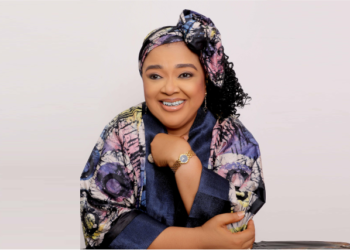
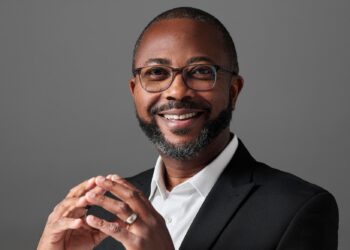
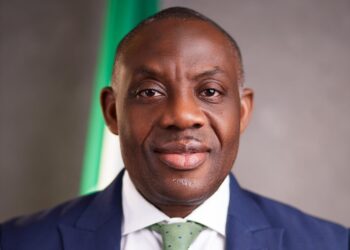
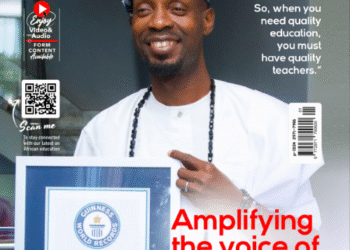

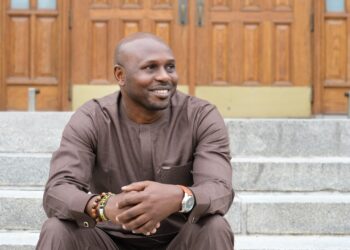










 EduTimes Africa, a product of Education Times Africa, is a magazine publication that aims to lend its support to close the yawning gap in Africa's educational development.
EduTimes Africa, a product of Education Times Africa, is a magazine publication that aims to lend its support to close the yawning gap in Africa's educational development.